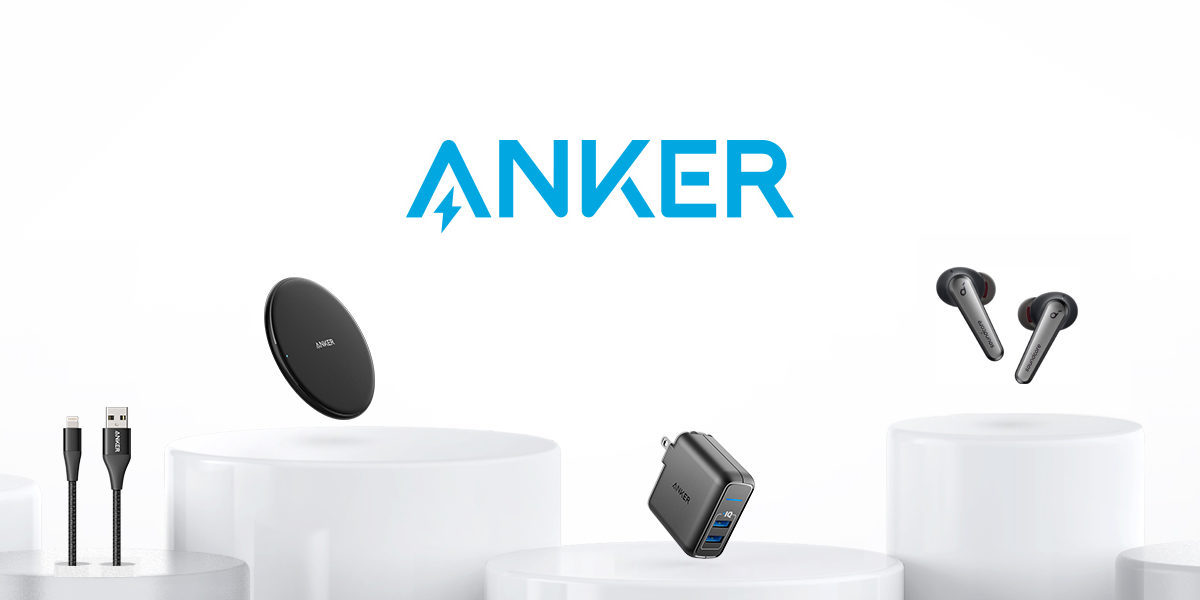Out of the thousands of brands you can buy on Amazon, how many Chinese brands can you name? Perhaps you know Aukey and Mpow, especially after they became international news last month. But unless you are an e-commerce professional, even the very largest Chinese brands—brands like Tribit and TaoTronics, for example—remain anonymous. (Having worked with both Tribit and TaoTronics, I can tell you that U.S. influencers have great difficulty even figuring out how to pronounce these brands’ names.)
There are two exceptions.
The first is Anker. Anker is the Amazon-native consumer electronics brand that every other Chinese seller aspires to be. Their charging ports and sundry other items are found in households across America. If you ask an American to name a non-Apple brand that sells chargers, they are going to name Anker.
However, they almost certainly do not know that Anker is Chinese. I have heard the same response countless times from various friends and relatives:
“Really? Anker is a Chinese brand? I figured it was German.”
Whether it is the hard “k” sound that suggests Germanic roots or simply the Teutons’ reputation for quality engineering, Anker is clearly doing something right. To be a Chinese brand in America signifies low prices but inferior quality. To be Made in the U.S.A. or Europe suggests a level of care paid to customer satisfaction.
The second brand is DJI. DJI is the world’s premier maker of drones. Similar to Anker, if an American is able to name a brand that sells drones, that brand is going to be DJI. Although Americans may be more likely to correctly identify DJI as a Chinese brand if asked about its country of origin, they still do not associate DJI as a “Chinese brand.”
Why is this? How have these two companies overcome the negative stereotypes Americans have when buying Chinese products?
There is a short answer and a long answer.
The short answer is that these brands both care. They want to rise above international perceptions of their country’s factories and forge their own images in the mind’s eyes of Americans.
To do this, they take painstaking care in airbrushing out anything identifiably Chinese from their marketing material. Listings are all written in perfect English, photographs do not look like they were made with Microsoft Paint, copy is not riddled with foreign punctuation marks.
The long answer is that both of these companies know how to appeal to Americans.
Ask most Chinese sellers why they sell what they do, and you will hear about a trove of analytics on the online shopping habits of Americans. But what you will not hear any of them say: “Because we have Americans on our team.”
This is the key difference.
The CEO of Anker, Steven Yang, founded the company after two years of schooling at UT-Austin and five years of working for Google in Mountain View, California. DJI was a no-name maker of component parts before Frank Wang hired Colin Guinn to establish DJI North America. Even after a high-profile parting of ways with Guinn, DJI hired top talent from Apple and Tesla to run an R&D lab in Palo Alto. The investment in America was critical for DJI’s success. Check out this Wall Street Journal article from 2014, when the DJI Phantom had become the most popular drone in the United States:
Many consumers assumed the company was American. “It doesn’t come off as a Chinese company,” said Mr. Brown of Adobe. “From the design of the aircraft, to their packaging, even down to their website.”
Both Anker and DJI have America in their corporate DNA. They learned about the United States not from consumer research and yearly trips to Las Vegas for CES, but by living here and learning from real Americans. Both Anker and DJI have American employees who live in America. They know what they need to do to have a successful product launch in a country that is not their native land.
Any Chinese brand who wants to become the next Anker or DJI must keep this in mind. Hiring a straight-out-of-college marketing specialist who got top marks in English and enjoys watching “The Big Bang Theory” is not going to cut it. To be successful in America, a foreign brand needs American stakeholders, people who have lived experience in the United States who can act as the company’s “eyes and ears” 8,000 miles away.
Until the leaders of these companies learn that this is where they should be spending money, as opposed to “black hat” practices like fake reviews, you can expect Americans’ opinions of Chinese sellers to continue to trend in a negative direction.

